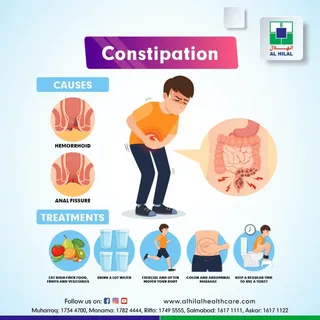Collagen has become a staple in many wellness routines, thanks to its wide range of benefits—from promoting joint health to improving skin elasticity and supporting muscle recovery. But as collagen gains popularity, questions about its side effects have naturally followed. One of the most commonly discussed concerns is: can collagen cause constipation?
If you’ve recently started taking collagen and noticed changes in digestion or bowel habits, you’re not alone. While collagen is generally well-tolerated, understanding how it interacts with your digestive system can help you use it more effectively—and more comfortably.
Understanding Collagen and Its Benefits
Collagen is the most abundant protein in the human body. It’s found in skin, bones, muscles, and connective tissue, providing structural support and aiding in tissue repair. Many people take collagen supplements to address age-related decline in collagen production, which typically starts as early as our mid-20s.
The benefits of collagen supplementation include:
- Improved skin hydration and elasticity
- Stronger hair and nails
- Enhanced joint and bone health
- Faster post-workout recovery
- Support for gut lining and overall digestive wellness
Despite these impressive benefits, some users report digestive discomfort when they first incorporate collagen into their routines—most notably bloating or irregularity.
So, Can Collagen Cause Constipation?
The short answer is: yes, it can—but not always.
Constipation isn’t a common side effect for everyone, but certain factors can increase your risk. In this comprehensive review on whether collagen can cause constipation, experts explain how collagen interacts with digestion based on dosage, formulation, hydration levels, and individual gut sensitivity.
Here are a few possible reasons why collagen may lead to constipation in some users:
1. Lack of Fiber in the Diet
Collagen itself doesn’t contain any fiber. If your daily fiber intake is already low, adding a pure protein supplement like collagen without balancing it with fiber-rich foods can disrupt your digestive rhythm.
2. Insufficient Water Intake
Collagen requires water for proper digestion and absorption. When users take collagen powder but don’t increase their water intake, it may contribute to sluggish digestion or hard stools—especially if taken in higher doses.
3. Overuse or High Dosage
While collagen is safe for daily use, more isn’t always better. Taking too much collagen—especially on an empty stomach or without other nutrients—can overwhelm the digestive system, potentially leading to gas, bloating, or constipation.
Tips to Prevent Digestive Discomfort When Taking Collagen
If you’re worried about the possibility of constipation, here are some simple tips to help you enjoy collagen without digestive side effects:
- Stay Hydrated: Drink a full glass of water with your collagen supplement and stay hydrated throughout the day.
- Pair with Fiber: Incorporate fiber-rich foods like fruits, vegetables, chia seeds, or oats into your routine.
- Start Slow: Begin with a smaller serving size and gradually increase to the full dose as your body adjusts.
- Time It Right: Some users find collagen easier to digest when taken with a meal rather than on an empty stomach.
- Choose Clean, Additive-Free Collagen: Products without artificial sweeteners, fillers, or additives are less likely to irritate the gut.
Why Your Supplement Choice Matters
Not all collagen supplements are created equal. Quality and purity can have a major impact on both effectiveness and how your body responds.
BioOptimal Supplements offers clean, professional-grade collagen that’s free from unnecessary fillers, additives, and allergens. Formulated with optimal bioavailability in mind, it’s designed to minimize digestive discomfort while maximizing health benefits. This makes it an excellent choice for wellness-focused individuals who value purity and performance.
Who Might Be More Sensitive to Digestive Changes?
Some groups may be more likely to experience constipation when starting a new collagen routine:
- Older adults: Natural changes in digestive motility can make seniors more sensitive to dietary changes.
- Women during hormonal shifts: Menstrual cycles, pregnancy, or menopause can affect gut function.
- Professionals with sedentary jobs: A lack of movement can slow digestion, making hydration and fiber even more essential.
If you fall into one of these groups, being proactive about hydration and fiber intake can go a long way in making your collagen experience smoother.
Final Thoughts: Balance Is the Key
So, can collagen cause constipation? It’s possible—but avoidable. With proper hydration, a fiber-rich diet, and high-quality collagen, most people can enjoy the many benefits of this powerful protein without experiencing uncomfortable side effects.
Digestive sensitivity shouldn’t stop you from taking advantage of one of the most valuable superfood supplements on the market. By choosing clean formulations and paying attention to how your body responds, you can tailor your collagen use for optimal results.


